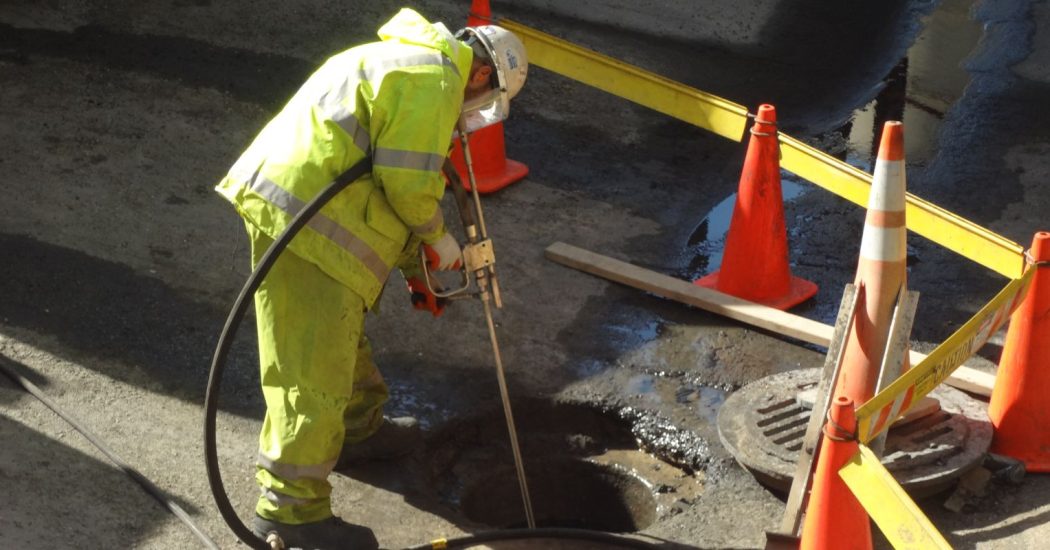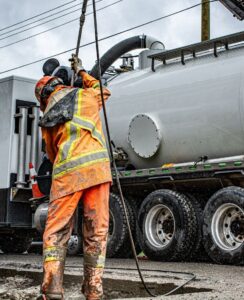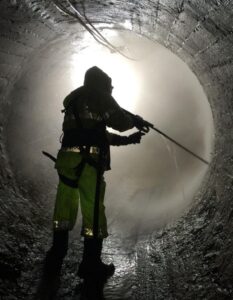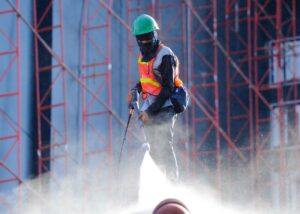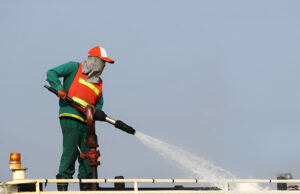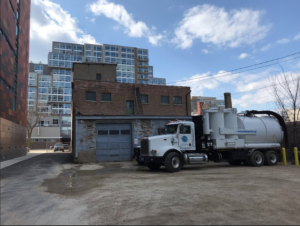In the industrial world, efficient cleaning and maintenance are vital to ensure safety, productivity, and longevity of equipment. Over recent years, industrial water blasting has emerged as one of the most effective and eco friendly solutions to meet these demands. This powerful cleaning technique harnesses high pressure water jets to remove dirt, scale, and other contaminants without the need for harsh chemicals or abrasive materials.
If you manage a plant or oversee industrial maintenance, understanding the diverse applications and benefits of high pressure water blasting can help you optimize operations and maintain a safer working environment. In this article, we will dive deep into five key industrial uses of this technology, highlighting why it’s a preferred choice across multiple sectors.
What Is Industrial Water Blasting?
Industrial water blasting also known as hydro blasting or high pressure water jetting is a process that utilizes water at extremely high pressures, sometimes exceeding 40,000 PSI, to clean surfaces, remove buildup, and prepare equipment for further use. The water is forced through specialized nozzles to create a concentrated stream capable of cutting through grease, grime, rust, and mineral deposits.
Unlike traditional abrasive blasting, water blasting does not generate dust or leave behind chemical residues, making it safer for workers and more environmentally responsible. The technology also offers remarkable flexibility, with pressure and nozzle adjustments allowing operators to tailor the cleaning intensity for specific tasks and materials.
1. Surface Cleaning: Restoring Industrial Spaces to Pristine Condition
One of the most common industrial uses for high pressure water blasting is surface cleaning. Over time, industrial facilities accumulate layers of dirt, grease, oils, and other residues that can interfere with safety and equipment function. Traditional cleaning methods may be labor intensive, ineffective, or environmentally harmful.
High pressure water blasting efficiently removes contaminants from a variety of surfaces, including concrete floors, steel beams, walls, and machinery exteriors. For example, in food processing plants, maintaining hygienic surfaces is critical, and water blasting offers a thorough cleaning solution without the risk of chemical contamination.
Moreover, plant floors can become slippery due to oil and grease buildup, increasing the risk of accidents. By regularly cleaning these surfaces using water blasting, companies improve workplace safety and comply with regulatory cleanliness standards.
2. Scale Removal: Improving Equipment Efficiency and Longevity
Mineral scale buildup is a pervasive problem in many industrial environments, especially those involving water systems like boilers, heat exchangers, and piping networks. Scale deposits reduce heat transfer efficiency, cause blockages, and accelerate corrosion, all of which lead to increased energy consumption and costly repairs.
High pressure water blasting offers an effective method for scale removal by breaking up and flushing out these hardened mineral deposits. This technique is preferred over chemical descaling agents because it does not introduce potentially hazardous substances into the environment or the equipment.
For example, power plants regularly use hydroblasting to clean boiler tubes, preventing fouling and maintaining peak operational efficiency. Similarly, chemical plants utilize water blasting to clean reactor vessels and pipelines, minimizing downtime and extending equipment service life.
3. Equipment Cleaning: Maintaining Machinery Without Damage
Industrial machinery operates under harsh conditions, accumulating grease, dust, and contaminants that, if not removed, can impair performance or cause premature wear. Cleaning these machines is essential but challenging because many components are sensitive to abrasive or chemical cleaning methods.
Water blasting provides a gentle yet effective cleaning solution for industrial equipment. The ability to adjust pressure settings allows operators to target dirt and grease without damaging sensitive parts or coatings. This is especially important in industries like automotive manufacturing, aerospace, and heavy machinery where precision equipment must be carefully maintained.
Routine hydroblasting cleaning helps reduce mechanical failures, prevent overheating, and maintain accurate operation all contributing to longer equipment lifespan and lower maintenance costs.
4. Surface Preparation: Ensuring Quality Finishes and Coatings
Before applying paints, coatings, or adhesives, surfaces must be properly prepared to ensure strong adhesion and lasting finishes. Contaminants such as rust, old paint, grease, and dirt can compromise the bonding process, leading to premature peeling or corrosion.
High pressure water blasting is widely used for surface preparation because it removes unwanted material while preserving the integrity of the substrate. For instance, in shipbuilding and repair, hydroblasting removes rust and old coatings from hulls, ensuring new paint adheres firmly and protects against corrosion.
Similarly, automotive and construction industries rely on water blasting to prepare metal panels and structural elements before finishing. Unlike abrasive blasting, water blasting minimizes surface profile changes, which is crucial for precision applications.
5. Eco Friendly Cleaning: Reducing Chemical Use and Waste
Sustainability is a growing priority for industries worldwide, and companies are seeking ways to reduce environmental impact without sacrificing performance. High pressure water blasting stands out as an eco friendly cleaning solution that aligns with green initiatives and regulatory requirements.
By using only water under pressure, hydroblasting eliminates the need for harsh chemicals that can pollute waterways, harm workers, and require expensive disposal procedures. The process also minimizes solid waste generation compared to abrasive blasting.
Many organizations have successfully integrated water blasting into their maintenance programs to reduce chemical use, lower operational risks, and meet increasingly strict environmental standards. This not only benefits the planet but also improves corporate responsibility and public image.
Safety Considerations When Using Industrial Water Blasting
While highly effective, industrial water blasting requires skilled operation and strict safety protocols. The high pressures involved can cause serious injuries or equipment damage if not handled properly. It is essential to use trained operators, wear appropriate protective gear, and regularly inspect equipment to maintain safe operations.
Conclusion
Industrial water blasting is a versatile and powerful technology transforming maintenance and cleaning across sectors. From surface cleaning and scale removal to equipment maintenance, surface preparation, and eco friendly cleaning, its applications are wide ranging and highly beneficial. Plant managers and maintenance teams who adopt high pressure water blasting can expect improved operational efficiency, enhanced safety, and reduced environmental impact.
As industries continue to pursue sustainable and cost effective solutions, high pressure water blasting stands out as a proven method to meet these goals while maintaining the highest standards of cleanliness and equipment care.
Contact us today to learn how industrial water blasting can optimize your maintenance processes and boost operational efficiency. Our experts are ready to help you find the perfect solution tailored to your needs
Frequently Asked Questions (FAQs)
Q1: What industries benefit most from industrial water blasting?
A: Manufacturing, oil and gas, food processing, power generation, marine, automotive, and construction industries commonly rely on water blasting for cleaning and maintenance.
Q2: Is industrial water blasting environmentally friendly?
A: Yes. It reduces chemical usage and waste, uses only water, and produces minimal environmental impact compared to traditional cleaning methods.
Q3: Can high pressure water blasting damage equipment?
A: When performed by trained operators using appropriate pressure settings, it cleans effectively without damaging equipment surfaces.
Q4: How often should equipment be cleaned using water blasting?
A: Cleaning frequency depends on the type of equipment, usage intensity, and environmental conditions. Regular maintenance cleaning is generally recommended.
Q5: Is special training required to operate industrial water blasting equipment?
A: Yes, due to the high pressure and potential hazards, operators should undergo training to ensure safety and maximize cleaning efficiency.

